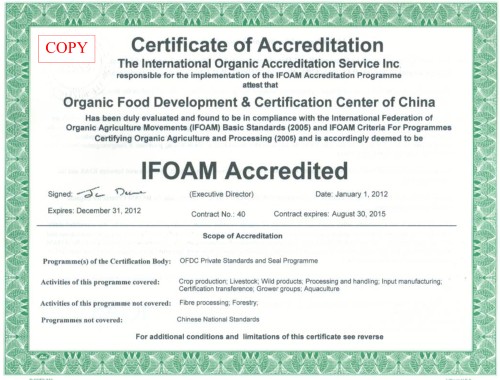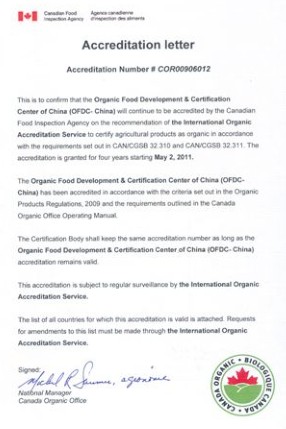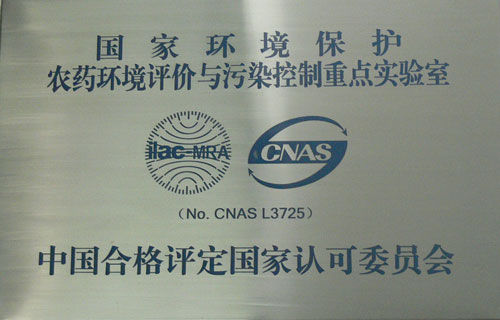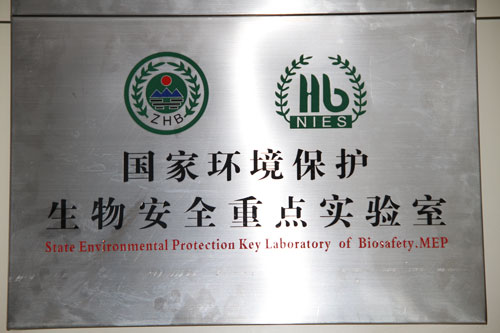The Nanjing Institute of Environmental Sciences (NIES) of the Ministry of Ecology and Environment was founded in 1978. It is a public research institution directly under the Ministry and one of the earliest institutes in China to conduct environmental protection research. Since its establishment, NIES has been dedicated to forward-looking, strategic, fundamental, and applied research in the field of ecological conservation and soil pollution prevention and control. Its research scope covers ten fields and thirty-two research directions, including ecological conservation and restoration, natural protected areas, biodiversity conservation and biosafety, ecological civilization construction, eco-effects and pollution prevention of chemicals, solid waste pollution prevention and control, watershed ecological protection and pollution prevention technologies, soil pollution prevention and control, rural environment and organic food development, and environmental management and engineering technology. Based on the relevant research achievements, NIES has also conducted extensive technical consulting work in ecological and environmental protection planning, organic product certification consulting, environmental safety assessment of agricultural chemicals, contaminated site remediation, and environmental engineering.
NIES currently has 719 employees, including one academician of the Chinese Academy of Engineering, 173 senior professional titles, 199 doctors, and 398 masters. Eleven of them receive special allowances from the State Council, and one is a national "Ten Thousand Talents Program" talent. Thirteen talents are environmental protection technical leaders and young talents. They form an innovative talent team led by well-known experts, supported by scientific and technological backbone in various fields, and dominated by young and middle-aged scientific and technological personnel. The institute covers an area of 2.5 hectares and has a building area of 27,000 square meters.
Since its establishment, NIES has completed more than a thousand large and medium-sized projects, published over 3,200 papers in important academic journals at home and abroad, published more than 140 monographs, and obtained more than 1000 national invention and utility model patents. It has won 85 national and provincial-level science and technology progress awards. During the "Thirteenth Five-Year Plan" period, the institute jointly formulated more than 200 national environmental protection standards, technical specifications, and technical policies, which were promulgated and implemented by relevant national departments. It provided strong scientific and technological support for national environmental management decision-making and comprehensive technical support and services for ecological construction and pollution prevention and control in various regions.
The Journal of Ecology and Rural Environment, sponsored by NIES, is a Chinese core journal under the supervision of the Ministry of Ecology and Environment. Its academic influence has always been among the forefront of environmental protection journals in China. NIES has carried out extensive research project cooperation and personnel exchanges with more than 10 international organizations, including the United Nations Environment Programme, the World Wide Fund for Nature, and more than 30 countries, including the United States, Germany, the Netherlands, and Norway. NIES and Nanjing University jointly established the English journal Eco-Environment & Health, which focuses on the interaction between ecology, environment, and health based on the concept of "big health." The journal focuses on four directions: ecological and biodiversity conservation, environmental fate and bioprocess of new pollutants, human exposure and health effects, and evaluation, management, and regulation of environmental risks.
Since its establishment, NIES has always adhered to the motto of "unity, dedication, pragmatism, and innovation," actively participated in major national and local scientific research projects, and has become an important force in China's environmental science and technology community, providing comprehensive technical support and services for national environmental management decision-making and deepening the fight against pollution.
Tel:025-85287001、025-85287298 P.C:210042 Add:8 Jiangwangmiao street, Nanjing, P. R. China



